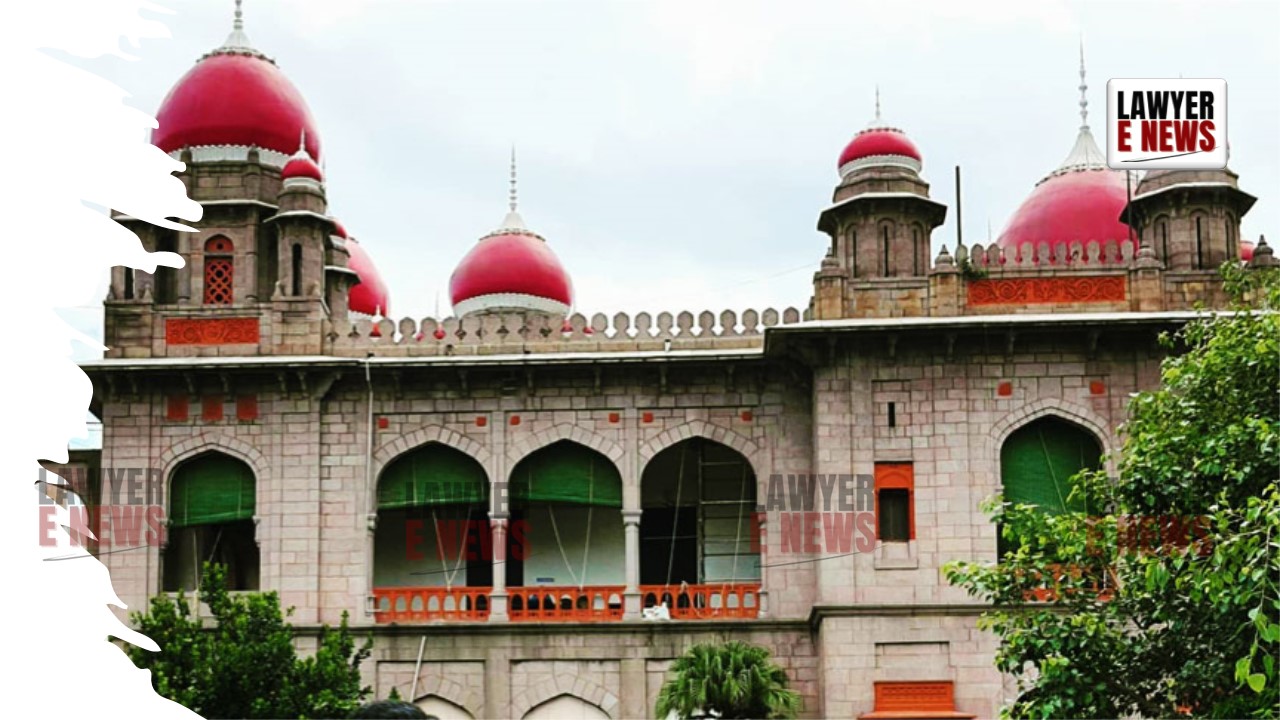-
by Admin
15 February 2026 5:35 AM



Telangana High Court, comprising Justices Moushumi Bhattacharya and Nagesh Bheemapaka, dismissed a Civil Revision Petition filed by the State of Telangana in The State of Telangana v. M/S Siddartha Constructions Pvt. Ltd. The petitioners sought to challenge the rejection of their application under Order VII Rule 11 of the Civil Procedure Code (CPC), which aimed to dismiss the plaint on grounds of limitation and non-compliance with pre-institution mediation under Section 12A of the Commercial Courts Act, 2015. The Court ruled that the petition was not maintainable due to the bar imposed by Section 8 of the Commercial Courts Act on challenging interlocutory orders.
The respondents, M/S Siddartha Constructions Private Limited, had filed a suit against the State of Telangana seeking a direction for payment of Rs. 29,78,10,763 along with future interest. The petitioners moved an application under Order VII Rule 11 CPC, arguing that the suit was barred by limitation and had not complied with the mandatory pre-institution mediation requirement under Section 12A of the Commercial Courts Act, 2015.
The Commercial Court rejected the application, noting that the suit was within the limitation period due to the orders passed by the Supreme Court during the COVID-19 pandemic, which extended limitation periods. Additionally, the court held that the pre-institution mediation requirement under Section 12A was not applicable since the suit had been filed prior to the Supreme Court’s ruling in Patil Automation Pvt. Ltd. v. Rakheja Engineers Pvt. Ltd., which made the provision mandatory prospectively from August 20, 2022.
The primary legal issue before the Telangana High Court was whether the Civil Revision Petition, filed under Article 227 of the Constitution, was maintainable in light of the statutory bar under Section 8 of the Commercial Courts Act, 2015, which prohibits filing revision applications against interlocutory orders.
The petitioners argued that the suit was not maintainable as it violated Section 12A of the Commercial Courts Act, which mandates pre-institution mediation in commercial disputes. They also contended that the High Court's supervisory jurisdiction under Article 227 could be invoked to bypass the statutory bar, citing judicial precedents such as M.V. Ramana Rao v. N. Subash and Harpreet Singh Chhabra v. Suneet Kaur Sahney.
The respondent, however, argued that the suit was filed before the mandate under Section 12A became applicable and that the petitioners failed to appeal under Section 13(1) of the Commercial Courts Act, which governs appeals from decrees of Commercial Courts.
The High Court dismissed the Civil Revision Petition on the grounds of non-maintainability, noting that Section 8 of the Commercial Courts Act explicitly bars revision petitions from interlocutory orders. The Court emphasized that Section 8 begins with a non obstante clause, making it clear that the bar applies despite any other laws in force. The Court further highlighted that the petitioners had the option to file an appeal under Section 13 of the Act, which they failed to do.
"The power of superintendence of a High Court under Article 227 is not an un-fettered jurisdiction where each and every order can be corrected or interfered with. The High Court must exercise this power sparingly, particularly in light of specific statutes like the Commercial Courts Act, which aims to expedite high-value commercial disputes." [Para 13]
The judgment also referenced the Patil Automation ruling, affirming that the pre-institution mediation requirement under Section 12A applies only to suits filed after August 20, 2022. Since the suit in this case was filed on November 30, 2021, it was exempt from the mandatory mediation requirement.
Ultimately, the Court held that invoking Article 227 to circumvent the bar under Section 8 of the Commercial Courts Act was not permissible:
“The petitioners cannot take refuge under Article 227 of the Constitution for maintaining the present Civil Revision Petition.” [Para 17]
The Telangana High Court dismissed the Civil Revision Petition filed by the State of Telangana, ruling that the petition was barred under Section 8 of the Commercial Courts Act, 2015. The Court held that interlocutory orders issued by the Commercial Court cannot be challenged through a revision petition, and the proper remedy would have been an appeal under Section 13 of the Act. The Court also clarified that Article 227 cannot be invoked to bypass this statutory bar.
Date of Decision: September 20, 2024
